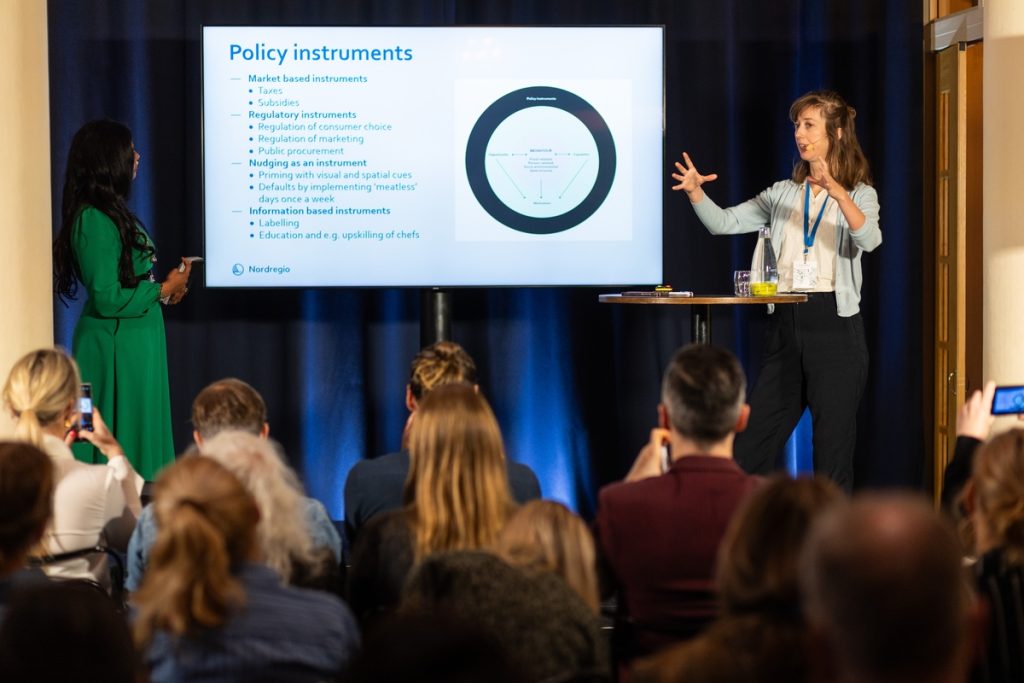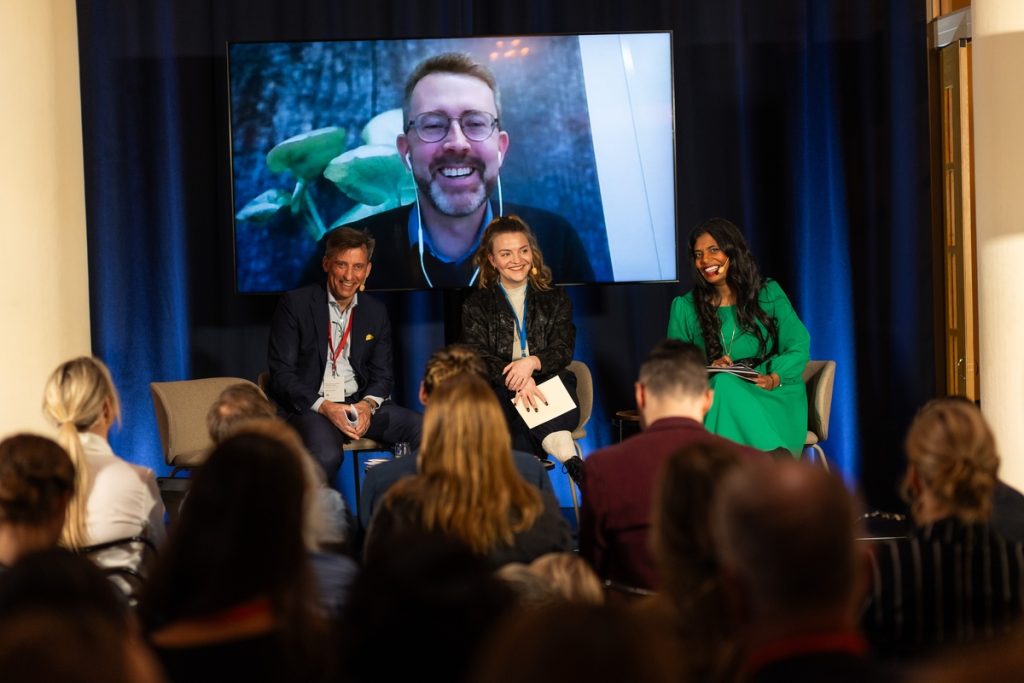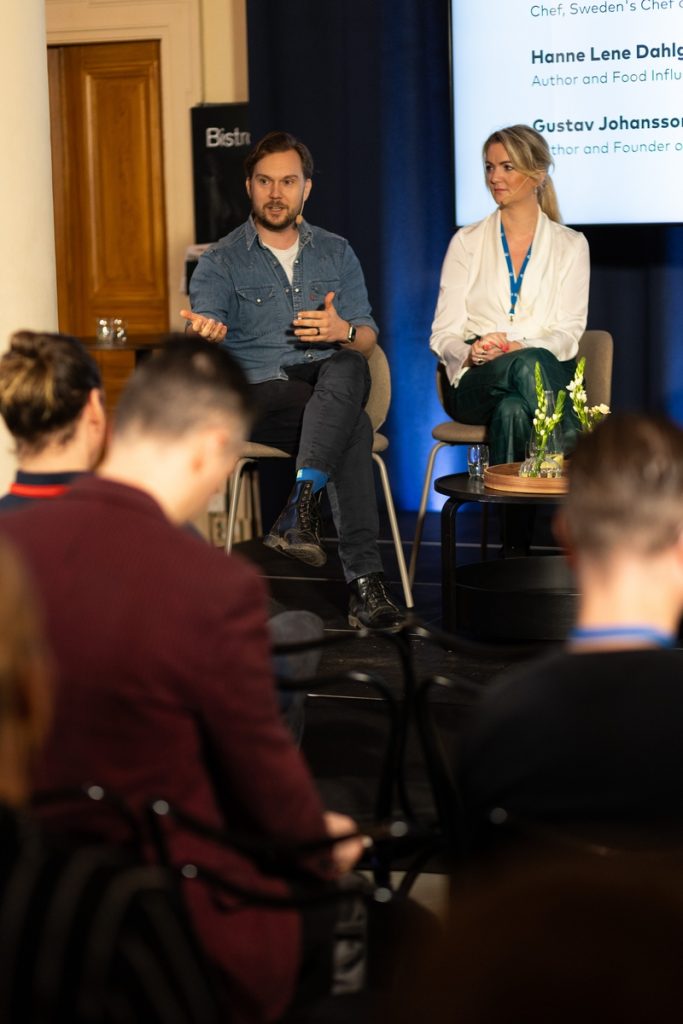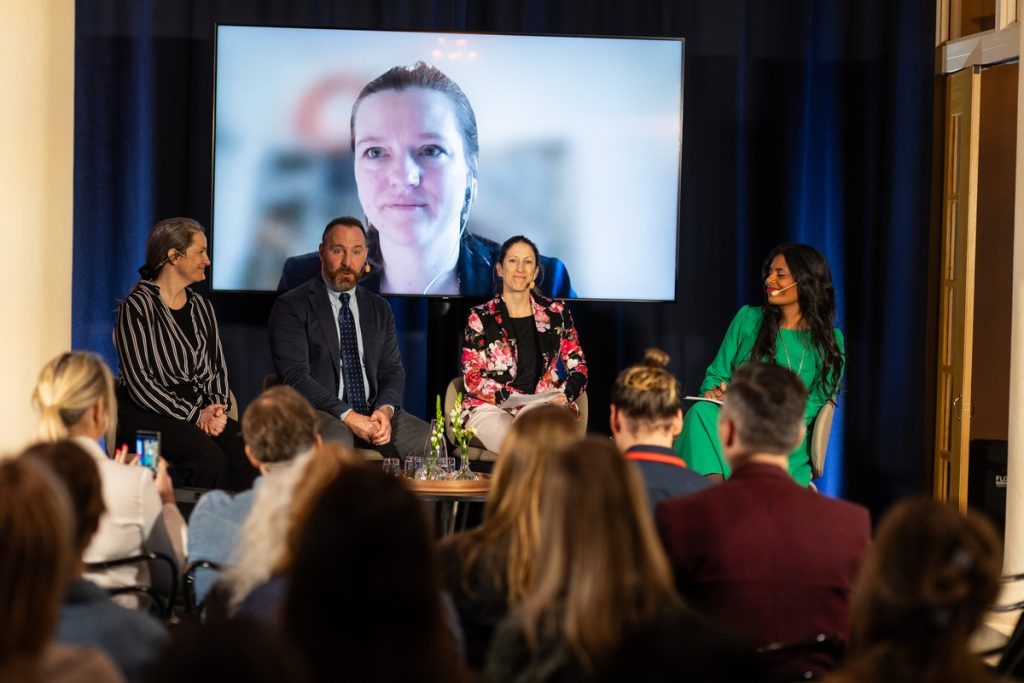Changing our eating habits is the most effective thing we can do for both public health and the climate in the Nordics. According to a new report, taxes and subsidies are key policy tools for making that happen. Thought leaders in the food system call for strong governmental action and more collaboration for better evidence-based policies.

Dietary habits are a major factor in disease development, and food systems are responsible for one-third of human-caused emissions. The new report “Policy tools for sustainable and healthy eating” explores policy measures that could facilitate the adoption of sustainable and healthy food alternatives at a time when scientific evidence repeatedly underscores the mounting pressures on both climate and public health.
“This new report gives us the direction and tools for the difficult decisions we need to make and the discussions we need to have in order to make things easier for people to live sustainably and healthily,” says Karen Ellemann, Secretary General of the Nordic Council of Ministers.
The report demonstrates how the Nordic countries can bolster their food consumption strategies in various ways and create an environment that makes it possible for citizens to eat sustainably and healthily. Taxes and subsidies are key policy tools and the report also suggests co-operation on labelling and marketing regulations to make it easier for people in the Nordics to enjoy healthier and more climate-friendly diets.
People want cheaper fruits and vegetables – where is the political response?
During the report launch event, several panel discussions were held with a mix of representatives from academia, government, industry, and civil society.
Olga Grönvall Lund, representing the association Reformaten, highlighted the disconnect between politicians’ readiness to employ policy tools and the communication of these efforts to the public, underscoring the urgent need for more informed decision-making by both policymakers and consumers.
“Despite a significant demand from the public, with 87% of Swedes in favour of reducing taxes on fruits and vegetables, there’s a noticeable lack of political willingness to meet these expectations and act on recommendations.”

Thomas Roland, Head of Product Liability and Quality at Coop Denmark, pointed to a consumer survey indicating a willingness among Danes to pay higher prices for less healthy options if healthier foods are priced more affordably, highlighting a potential area for policy intervention to support healthier public dietary choices.
Retail chains can make an impact when designing stores in a way that nudges customers towards better options, such as placing the most climate-friendly fruits and vegetables near the entrance. This strategic placement led to a 30-40% increase in sales of these items in the Coop Århus store.
“However, we need to use nudging wisely. When we over-emphasise the climate benefits for the consumers, it can actually reduce sales”, said Roland.
But instead of merely nudging the market, how can we nudge within society?
“How can we shape cities and regions to create healthy food systems? I doubt the food system can solve its own problems. The societal cost of obesity is immense, 120 billion a year, or 2 per cent of Sweden’s GDP. Could we instead use that money for prevention? The price we pay for food doesn’t reflect the consequences those foods have on us”, said Olga Grönvall Lund.
“Taxation is a sensitive topic”
Ole Henrik Krat Bjørkholt, state secretary of the Norwegian Ministry of Health, acknowledged that taxes are effective but questions their appropriateness in the current situation. He noted that while taxes on items like alcohol have been shown to impact public health, they remain a controversial political tool, especially during high inflation and food prices, disproportionately affecting less well-off families. This concern ties into the broader issue of the socioeconomic health divide, where higher-educated and wealthier individuals tend to follow nutritional recommendations more closely.
To avoid deepening this divide since direct health taxes disproportionately impact low-income earners, the Norwegian government is exploring alternative measures. There are plans to ban the marketing of unhealthy, fatty, and heavily processed snacks to children and teenagers.
Make healthy and sustainable food “jävligt gott”
Gustav Johansson, the creator of Sweden’s biggest vegan food blog “Jävligt Gott,” shared his personal journey and insights into making sustainable and healthy eating more accessible and appealing. His journey began at 19 when he switched to a plant-based diet and experienced significant health benefits and weight loss. However, he struggled with the concept of giving up traditional dishes that he loved to eat.
“I craved normal foods like meatballs and pepperoni pizzas. That food any 20-year-old guy from Borlänge wants to eat. But as a vegetarian, you cannot eat that – it’s quorn wok and a weird bolognese at best.”
He realised he couldn’t give up the foods he loved but find sustainable and healthy alternatives that satisfied his cravings. This approach to food encourages a gradual shift towards sustainable eating by transforming how we perceive and enjoy our meals and moving away from the meat norm.

Our food choices are not rational
Cortney Price, Lead for Behavioural Science at the Food and Agriculture Organization of the United Nations (FAO), argued that evidence should be used early in the policy process rather than as an afterthought. The analysis of barriers to healthy and sustainable eating is crucial.

Price also discussed the irrational nature of our food choices and the behavioural aspects of these decisions. He pointed out that rational thought does not typically drive our food choices; instead, we need systems designed to facilitate good automatic choices.
“Knowledge doesn’t drive our food decisions. Instead, environmental necessities often make us make bad choices in the supermarket. I find myself having to engage my frustratingly slow logical brain to opt for vegan options while my friends enjoy burgers.”
He was supported by Leneisja Jungsberg, who emphasized that factors such as taste preferences, the feeling of fullness, and the attractiveness of food, along with personal and social-environmental considerations like cooking skills, family traditions, and economic affordability, play significant roles in our dietary choices.
The conclusion after the panel debates was a wish for stronger government action, including collaboration with research sectors, industry, and governmental bodies.
“We need to get the ball rolling faster”, concluded the moderator Åsa Sandberg.
Photos: Stephanie Wiegner / norden.org







